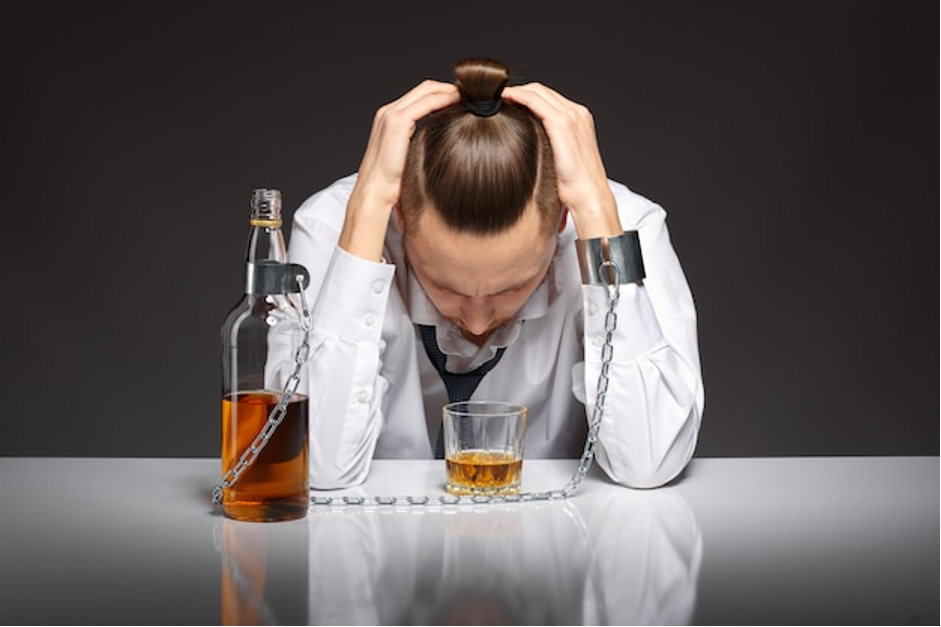
Deciding to stop drinking when you only do so occasionally is not usually a problem. People often do this during designated months like ‘Dry January.’ However, once your brain is dependent on alcohol always being present in your nervous system, and you suddenly stop drinking, you will experience alcohol withdrawal symptoms.
Quitting alcohol is always a positive choice. However, going through withdrawal can be frightening, especially if you have been drinking alcohol for a long time. It is important to follow a step-by-step approach to overcome the potentially severe symptoms.
Understanding Your Body’s Response to Alcohol Withdrawal
In 2022 alone, 4.3 million Americans sought treatment for alcohol addiction. It remains a highly treatable condition, and every patient can attain recovery. Unfortunately, the aftereffects of alcohol abuse, including alcohol withdrawal, are inescapable.
Moreover, your body will respond to alcohol withdrawal in many ways you may not expect. The duration of alcohol withdrawal differs from person to person, and the severity of your symptoms will depend on the frequency of your alcohol use. It is important to understand how your body may react to sudden withdrawal.
Physical withdrawal symptoms will typically peak two to three days after you have your last drink. These symptoms may last up to 10 days. In severe cases, they last up to two weeks.
Your withdrawal symptoms may include agitation, tremors, anxiety, delirium, or hallucinations. If you experience mild withdrawal symptoms, practicing self-care will prove vital. Drink plenty of water to combat dehydration, and consume clear broths to replenish electrolytes.
You will likely have a diminished appetite. Still, you must eat regularly to support your immune system. Get enough sleep to guide your body and brain through the healing process.
Alcohol withdrawal delirium is an extreme symptom. It is not possible to predict when someone will experience delirium during the withdrawal period. For this reason, you should be surrounded by loved ones who can monitor you and call for professional or medical assistance when needed.
You are at a higher risk of seizures and delirium if:
- You experienced previous severe alcohol withdrawal symptoms.
- You drank an excessive amount of alcohol over a long period.
- You have abnormal liver function.
- You experience an ongoing intense craving for alcohol.
- You used other addictive substances in addition to drinking alcohol.
The Stages and Timeline of Alcohol Withdrawal

When you decide to stop drinking after a period of heavy alcohol consumption, your body will go through three clear stages of withdrawal.
Stage 1 (6 – 12 hours after last alcoholic drink)
During the first few days, you may experience mild symptoms like insomnia, hand tremors, heart palpitations, and gastrointestinal problems.
Stage 2 (Within 24 – 48 hours)
When you reach the next stage of alcohol withdrawal symptoms, you may find that your heart rate increases along with your blood pressure. You may experience confusion and breathe rapidly. These symptoms often occur in conjunction with those from Stage 1.
Stage 3 (Within 48 – 72 hours)
Stage 2 symptoms often carry over to the last and most severe stage of the alcohol withdrawal process. During Stage 3, you are at risk of suffering seizures, visual and auditory hallucinations, and ongoing disorientation.
You should not attempt to work through the stages of alcohol withdrawal on your own, especially Stage 3. Ask a trusted loved one to help prepare meals and create a relaxing environment if you experience mild symptoms.
If your symptoms intensify, let your loved one know immediately. This will help them stay alert and prepared to call emergency services.
Making the Decision to Stop Drinking
It is never easy for anyone to make the conscious decision to stop drinking. For high-net-worth individuals (HNWI), it is often even worse because it means they have to admit they have a drinking problem. With this acknowledgment often comes feelings of guilt, shame, and embarrassment.
High-net-worth individuals also fear the alcohol withdrawal process because it often means leaving behind their usual comforts to get professional help at a rehabilitation facility.
If you are the owner of a large corporation or a successful social media influencer with millions of followers, you may fear the stigma that comes with alcohol addiction. You may also be reluctant to seek treatment because you do not know what awaits you at the treatment facility. Even with a loved one by your side, you may not want to seek help because you are hesitant about leaving behind the safe space of your home.
Unfortunately, alcohol withdrawal can become life-threatening, which is why it is advisable to go through the process in a facility where medical professionals are ready to help.
Getting the Help You Need During the Alcohol Withdrawal Process
Once you have decided to stop drinking, you need the reassurance that you will get to the other side of the withdrawal process.
This means getting help from an institution set up specifically for addiction rehabilitation but in a setting that is familiar to HNWI individuals. It means feeling safe and comfortable in a place that allows you to stay connected to your loved ones throughout the withdrawal process.
Getting help to overcome your alcohol dependence should include the option to incorporate physical activity into each day. Hiking, walking, yoga, training, and meditation support the healing process and improve the chances of a successful recovery program.
It is also crucial to have aftercare options as you prepare to return home after completing your recovery program.
Break Free From Alcohol Addiction With HARP
HARP provides rehabilitation experiences with a marked difference. The facility offers unconditional compassion and a host of medical and mental health experts who assist clients without judgment.
HARP can help you identify your addiction and set up a recovery plan based on your specific needs. The HARP consultants know how difficult it is for clients to be away from their families while they go through the alcohol withdrawal process. For this reason, they will encourage you to stay connected to your loved ones while you work on your recovery.
Moreover, HARP specializes in aftercare steps and programs to ensure that your journey to recovery stays on track even when you are back home.
As you seek to overcome alcohol addiction permanently, don’t let withdrawal symptoms go unchecked; build your Alcohol Crisis Support Team now. It is the best decision you can make for yourself, your family, and your future.



